Team
The COVID-19 in Africa Data Science Initiative comprises of a multidisciplinary team of Pan-African bio-statisticians, data scientists, economists, epidemiologists, and health systems researchers.
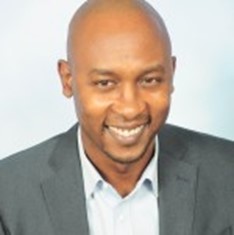
Tom Achoki is a physician and has trained in public health (MPH), infectious diseases and tropical medicine (DTM&H) at the University of Pretoria in South Africa. He has a PhD in health services research and pharmaceutical policy from Utrecht University and an MBA from the MIT Sloan School of Management. Tom had his post graduate training and research at the Institute of Health Metrics and Evaluation (IHME) where he also held a faculty position. Tom has held roles of increasing responsibility in public health services, academic institutions, private sector organizations and corporate foundations. He is active in healthcare entrepreneurship, innovation and research with a specific focus on digital health and data analytics. Here is a link to Tom’s profile.
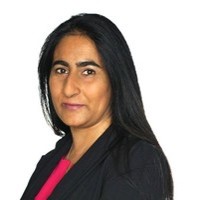
Uzma Alam, is a global health professional working at the intersection of infectious disease and healthcare delivery in the international development and humanitarian context. Where she applies data to inform and influence policy and programs. As a humanitarian worker, Alam has been deployed to the frontlines of outbreaks in Liberia, Sierra Leone, Guinea, Somalia, Uganda, Honduras, and Haiti where she has worked to combat Ebola, measles, and cholera among other infectious diseases. She has a diverse, multi-cultural background comprising of international experience serving with academic, corporate, non-profit and governmental entities, Uzma is passionate about taking a data-driven, culturally embedded approach to global health incorporating science, technology, and innovation (STI) to strengthen global health within marginalized populations, in a bid to drive social change. Uzma is a former editor of the Yale Journal of Health Policy, Law and Ethics. She is currently a board member of the Association of Yale Alumni in Public Health (AYAPH). Here is a link to Uzma’s profile.
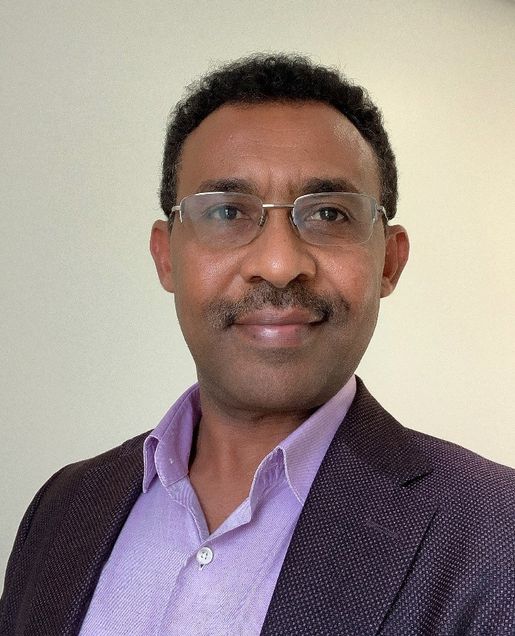
Yohannes is a graduate of the Australian National University with research interests and experience in the economics of health care and in modelling disease patterns, risk factors and population processes in global context. His work experience spans across Africa, Australia Europe, and the Middle East, and various institutions, including WHO, the Australian National University, the University of Queensland and Qatar University. Yohannes is currently an Associate Professor at the University of Canberra, Australia and holds similar position at the Department of Health Metrics Sciences with the University of Washington, Seattle, WA. He is also an Honorary Fellow at Murdoch Children’s Research Institute in Melbourne Australia and a member of the Scientific Council of the Global Burden of Disease at IHME. Here is a link to Yohannes’s profile.
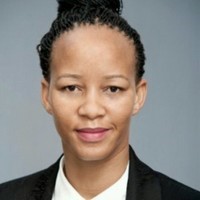
Abaleng Lesego is a student of health metrics and experienced in programmatic implementation of public health programs. She trained in statistics and health management, economics and policy with the University of Pretoria, SA and SDA Bocconi in Milan, Italy. A fellow alumni to the WHO Collaborating Centre for Pharmaceutical Policy and Regulation with Utrecht University. Abaleng has held positions with University Washington’s Global Health Department (I-TECH), University of Maryland IHV (BUMMHI) and University of Research Company in various positions in line with development and implementation of Monitoring & Evaluation plans of HIV/AIDS programs, Health Policy Research, and supporting deployment and utilization of Health Information Systems to address access gaps in essential services in national disease programs pioneering pharmaceuticals, medical technologies and other cost-effective interventions. Here is a link to Abaleng’s profile.
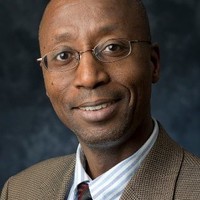
Theo Niyonsenga is an Associate Professor of Biostatistics, University of Canberra (UC) Faculty of Health, and member of both UC Health Research Institute (HRI) and Centre for Research and Action in Population Health (CeRAPH). Theo was trained in Mathematics, Physics & Engineering Sciences (Bachelor of Science, National University of Rwanda, 1979-82); in Mathematical Statistics (Master of Science & PhD, University of Montreal, Canada, 1982-91); and completed his postdoctoral research training in Biometry (University of Montreal, Canada, 1991-92). Theo has more than 20 years of experience working as a biostatistician in research, teaching and statistical consulting. Here is a link to Theo’s profile.

Elaine Nsoesie is an Assistant Professor at Boston University’s School of Public Health where she applies data science methodologies to global health problems, using digital data and technology to improve health, particularly in the realm of surveillance of chronic and infectious diseases. She has also been appointed as a BU Data Science Faculty Fellow, as part of the BU Data Science Initiative at the Hariri Institute for Computing. The Data Science Faculty Fellows program assembles a cluster of uniquely talented faculty whose expertise transcends traditional disciplinary boundaries to enable fundamental advances in data science. Here is a link to Elaine’s profile.
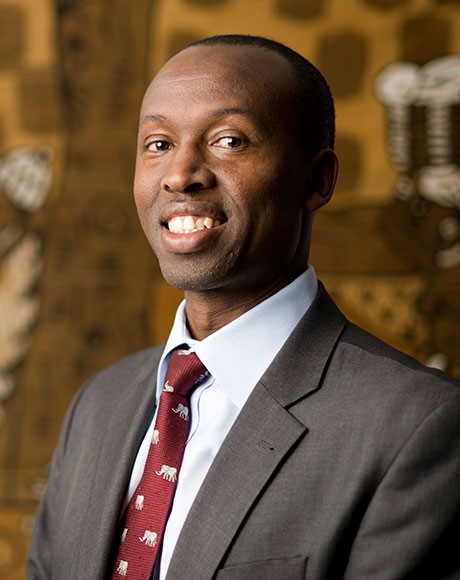
Richard Wamai is an associate professor at Northeastern University where he co-leads the Integrated Initiative for Global Health. He has trained in European (Helsinki, Oxford, Uppsala, London School of Economics) American (Harvard, Johns Hopkins, World Bank) and African (Nairobi, Egerton, Kumasi) institutions. He works in global health research, training, implementation and policy focusing on HIV/AIDS, neglected tropical diseases, non-communicable diseases, and health systems and policy in multiple countries across sub-Saharan Africa. His continuing scientific interests are in evidence-based development of strategies for evaluating, preventing and responding to infectious and non-communicable diseases in Africa in the context of the epidemiological transition. Here is a link to Richard’s profile.
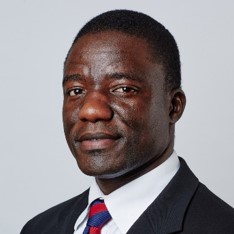
Lawrence Were is an assistant professor in the Department of Health Sciences at Boston University’s College of Health and Rehabilitation Sciences: Sargent College, and in the Department of Global Health at the BU School of Public Health. His research focuses on application of health economics in the estimation of the impact of reforms within healthcare systems and health insurance programs on the outcomes of marginalized and high risk populations. He is also interested in Complex Emergencies and Disasters, HIV/AIDS financing mechanisms and Geo-Spatial aspects of public health. He received his PhD in Health Services Research (HSR) – Health Economics from Brown University’s School of Public Health. Here is a link to Lawrence’s profile.